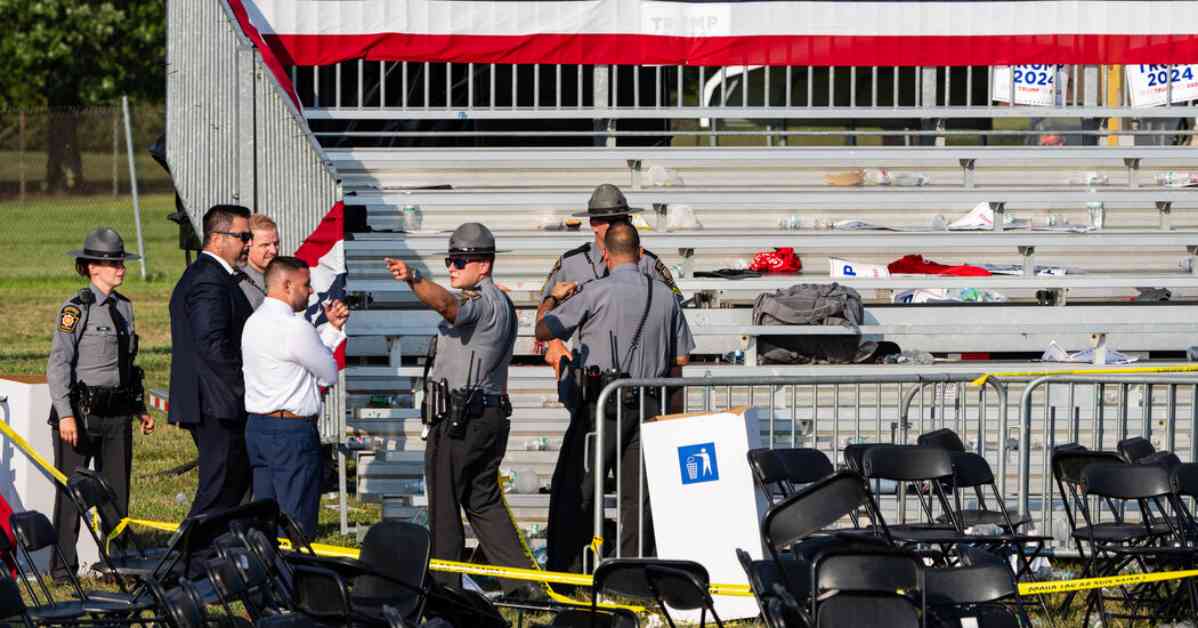Local police officers at a recent Trump rally have raised concerns due to their lack of surveillance in a critical area. Despite their presence in large numbers, very few officers were assigned to monitor a warehouse used by a man who attempted to assassinate former President Donald Trump.
Following the assassination attempt, questions have been raised regarding why the Secret Service did not include a nearby warehouse used by the gunman within its secured zone. In addition to this oversight, it has come to light that the local law enforcement officers were primarily assigned to work inside the secured zone rather than monitoring potential threats outside of it.
Various law enforcement agencies, including the Pennsylvania State Police, Butler Township Police Department, Butler County Sheriff, Pittsburgh Bureau of Police, and multicounty tactical teams, assisted the Secret Service during the campaign rally. However, none of these agencies were tasked with safeguarding the warehouses located just north of the event grounds, where the gunman was able to carry out the assassination attempt from a rooftop.
District Attorney Richard Goldinger, who oversees the multicounty tactical teams, defended the officers, stating that it was not their responsibility to secure the warehouse where the gunman positioned himself. Instead, the majority of the officers were assigned duties within the secured perimeter, which was protected by various security measures such as fences, metal detectors, and Secret Service personnel.
The lack of surveillance in the critical area outside the secured zone has raised concerns about the overall security protocols in place during the rally. It remains to be seen whether any changes will be implemented to address these shortcomings and prevent similar incidents from occurring in the future.
In light of these revelations, it is crucial for law enforcement agencies and security personnel to review their protocols and ensure that all potential threats are adequately monitored and addressed. The safety and security of public events, especially those involving high-profile individuals like former presidents, should be a top priority for all agencies involved. By learning from past incidents and making necessary adjustments, law enforcement can better protect both the public and VIPs at future events.


















